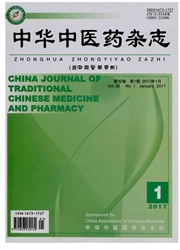

 中文摘要:
中文摘要:
目的:探索成年癫痫患者生活质量与中医体质的相关性,为临床调整体质偏颇以提高癫痫患者生活质量提供依据。方法:对186例成年癫痫患者进行横断面现场调查,填写中医体质调查表及癫痫患者生活质量问卷-89中文版(QOLIE-89)问卷,应用多元逐步回归分析法探讨二者的相关性。结果:1成年癫痫患者偏颇体质最多的是湿热质,其次是气虚质、阳虚质;2QOLIE-89各维度评分以语言交流、对健康不满分数最低;3平和质对患者生活质量大部分方面均起促进作用,气虚质对患者的精力/疲劳、疼痛影响较大,气郁质是降低QOLIE-89总分及多个方面的主要因素,尤其是与情绪相关的方面。结论:成年癫痫患者的生活质量与中医体质类型有一定的相关性,根据此关联性进行相关体质干预,可以作为提高癫痫患者生活质量的思路之一。
 英文摘要:
英文摘要:
Objective: To explore the correlation between life quality and constitution of traditional Chinese medicine (TCM) in adult patients with epilepsy in order to provide basis for improving the life quality of epilepsy patients by adjusting constitution unbalance of patients in clinical. Methods: 186 adult patients with epilepsy were surveyed with cross-sectional survey through filling the constitution in Chinese medicine questionnaire (CCMQ) and the quality of life in epilepsy inventory-89 (QOLIE-89), and the correlation between life quality and TCM constitution was analyzed by using multiple stepwise regression analysis. Results: (1) The main biased constitution was mostly damp-heat constitution, and followed by qi deficiency and Yang deficiency constitutions. (2) The scores of language communication and health discouragement in QOLIE-89 were the lowest. (3) The gentleness constitution had a promotion effect on all aspects of life quality. Qi deficiency constitution could influence the energy/fatigue and pain of patients. Qi depression constitution was the main factor of reducing the scores of QOLIE-89, especially associated with emotions. Conclusion: There was certain correlation between life quality and constitution of TCM in adult patients with epilepsy. According to the correlation, some interventions on constitution could be regarded as one of the ideas of improving the life quality of patients with epilepsy.
 同期刊论文项目
同期刊论文项目
 同项目期刊论文
同项目期刊论文
 期刊信息
期刊信息
